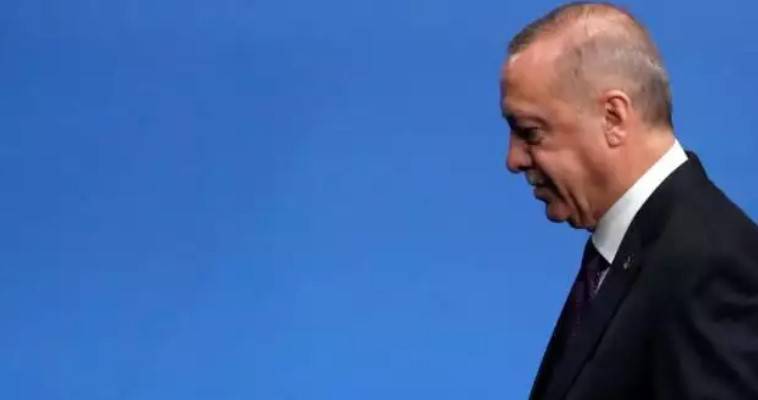Alexandros Tarkas: Ankara is setting a Mitsotakis-Erdogan communications trap
02/01/2021
Many foreign diplomats expect a vague statement from Turkish President Recep Tayyip Erdogan that Turkey wants to resume talks with Greece instead of the – required – clear invitation to Athens to resume exploratory talks in 2016 with a limited agenda from the point that they were suspended in 2016.
Recep Tayyip Erdogan’s vague statement will be, in essence, a trap for Greek Prime Minister Kyriakos Mitsotakis. Why will it not meet all the conditions set by Greek diplomacy for exploratory, while third countries and especially the USA, Germany, and France (which is moving in the direction of improving its relations with Turkey) are in danger of judging that Athens is the one that is allegedly rejecting Ankara’s initiative.
This game of impressions is aggravated by the fact that the Prime Minister had sought – through his diplomatic adviser Eleni Sourani – to repeat the exploratory talks much earlier, in order to avoid a “waterloo” at the European Council of December 10-11 due to the non-adoption of sanctions against Turkey.
According to the same foreign diplomats, the trap (substance and impressions) set by Ankara may include a telephone conversation between Erdogan and Mitsotaki in the coming weeks. It will be an impressive move, as all three announced telephone conversations of the two leaders during 2020 (January, June, and October) were fruitless and were used unilaterally by Ankara.
It should also be noted that the Greek government, in addition to the expected moves of Recep Tayyip Erdogan, has (as well) trapped itself, to a large extent, in terms of the timing of the talks. Because, while publicly stressing the need for a reasonable period of time without Turkish provocations in order to establish a climate of confidence for the start of exploratory talks, the closed-door diplomatic talks give the impression that the government will accept any date after the inauguration of new US President Joe on January 20, 2021.
Erdogan may succeed
Should the talks really resume at the end of January, the time until the European Council of 25-26 March 2021, which will review EU-Turkey relations, is too limited to draw definite conclusions as to Ankara’s real intentions.
It is therefore predicted that if there have not been any Turkish provocations before, Recep Tayyip Erdogan and Foreign Minister Mevlüt Çavuşoglu will cross the March hurdle. In the event that new tensions have arisen under the responsibility of Turkey, the consensus of Germany and other countries (including the Portuguese Presidency in the first half of 2021) on changing the EU’s stance is very doubtful. Instead of sectoral sanctions, which would be really effective, only the imposition of restrictive measures on natural persons is being considered, with the well-known reasoning that Turkey’s ties with the West should not be severed.
At the same time, much will depend on the attitude of the new Biden administration, as the European Council adopted the logic of coordination between Brussels and Washington vis-.-Vis Turkey. The Greek positions are supported at the official level of the State Department and the Pentagon (not necessarily immediately at the level of the White House), concerning the sanctions against Ankara for the Russian S-400s and the talks with Athens for a broad revision of the Mutual Defense Agreement. MDCA).
The pressure will continue
Taking into account the large number of new bases requested by the US on Greek territory and in addition the type of military facilities requested, the conclusion is that there is interest in the long-term support of Athens with a simultaneous review of all possibilities for relations with Turkey.
On the other hand, in favor of the Turkish positions is the fact that, despite the anger of the so-called Washington bureaucracy against Ankara, because of its relations with Moscow and for its tactics in Libya, Syria, and Iraq, there is also “understanding” concerning certain issues.
Such issues concern the burden that Turkey is bearing from the millions of Syrian refugees in its territory and for its willingness to “serve” the US, stopping the activity of Russian mercenaries in Libya, where the outgoing Trump administration did not want military intervention. However, US diplomats have assured European counterparts that they will continue to press Ankara to end the “controversial” drilling in the Mediterranean.





